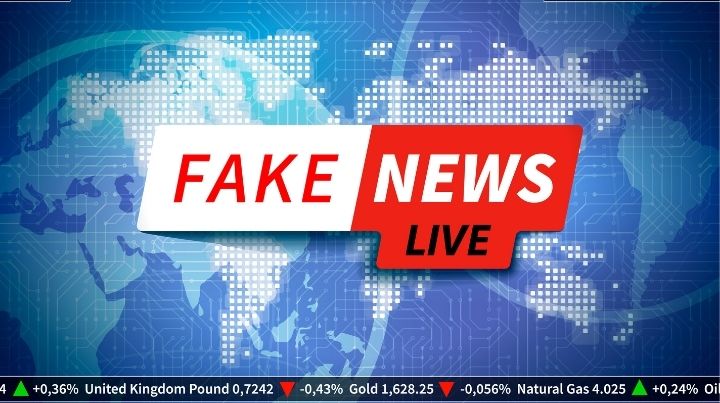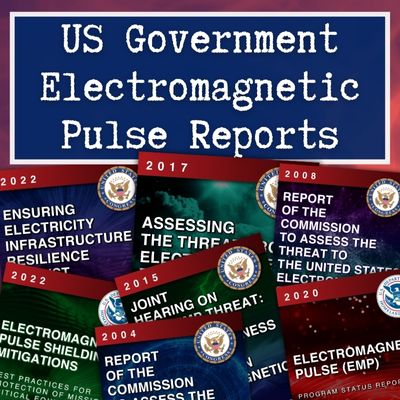113: 5 Ways to Spot Fake News


Podcast: Play in new window | Download
One of the critical abilities needed to master today’s world is the capacity to spot fake news. Knowing ways to spot fake news helps verify the information we base our decisions upon. When we can do that, we make more effective decisions, which is pretty important when it comes to preparedness.
Imagine if you made a change in your route based on misinformation and that change led you into greater difficulty, like straight toward the protest you were trying to avoid.
What Is Fake News?
Knowing how to spot fake news helps purify and verify the information we base our decisions on.
Fake news is misinformation. It’s important to note that sometimes reports are not intentionally fake – they’re just based on inaccurate information in the first place.
One of the ways to spot fake news is by the headline. Is it “clickbait?” Merriam-Webster defines clickbait as “Something (such as a headline) designed to make readers want to click on a hyperlink especially when the link leads to content of dubious value or interest.”
In other words, people create headlines and images designed to get readers to investigate their links. When we click on the links, they gain money and influence.
Back in the old days, when people obtained their news primarily from newspapers, magazines, radio, and television, it was generally easy to determine when someone was pulling your leg.
Pretty much anything in the National Enquirer was suspect. For example, tabloids featured stories with outrageous headlines, such as “Woman Gives Birth to Alien.” We may laugh at such titles, but what’s not so funny is in the last decade or two, with the growth of the internet and social media, fake news stories and entirely fraudulent news sites have proliferated.
It’s important to note (especially over the past year – murder hornets, anyone?) that not all headlines that seem outrageous are necessarily fake.
Who Creates Misinformation
There are three types of people, in my mind, who create misinformation.
- Those Who Make Money From Clicks
- People With Agendas
- Folks Who Have Nothing Better to Do
If you have ideas on why people create fake news, comment on the post to let us know. I want to keep expanding this topic so that over time, it becomes more comprehensive in giving people more ways to spot fake news headlines or articles.
Five Ways Spot Fake News
- Examine the website domain. Does it look odd, long, unusual?
- Legitimacy: Is the source legitimate or one known for publishing garbage? If you’re not sure about the source, what about the other titles on the site? “Mother Gives Birth to Three-Headed Alien With Blue Eye.” Are sites you know to be reputable carrying the story as well? Satire sites such as The Onion, the Babylon Bee, and others use satire. These sites rely upon irony, sarcasm, ridicule, or the like, to expose, denounce, or deride vice, folly, etc.
- Is the story some prediction of future events? In other words, is it an opinion piece? Does it predict future disasters, future cures, future certainties? If it’s about predicting the future, it’s likely an opinion piece. Remember the definition of clickbait?
- Fact-check. Use Google, DuckDuckGo, etc., to research facts in the story, such as the names of people, places, and things discussed. You may find additional information or the writer of the story is slanting or that it’s total BS. Try to find sources from different sides of the political spectrum to get a more balanced view of the story.
- Does the headline or the story cause enough emotion to make you want to share right away? Does the article make you feel good because it says something you agree with? Or how about a headline that makes you angry?
Biased News
Closely related to fake news is biased news. You can use different search engines to look up the exact same topic and get completely different answers from the different search engines. You can go to Fox News and CNN and find the same story but with totally opposite conclusions and slants. For example, one news outlet might call an event a “peaceful protest” while another outlet calls it a “riot.”
It’s difficult to reliably base your decisions on sources that are biased, too. Often the truth lies somewhere in the middle, and other times the truth is nowhere to be found.
The Bottom Line on Ways to Spot Fake News
The bottom line on ways to spot fake news is that the more emotion or reaction it gets from you, the more likely it is to be biased at best or fake at worst. Do your research to try and get to the truth of the matter before basing decisions on emotion-evoking “news.”
Stay safe,

5 Comments
Leave a Comment




Join Mind4Survival!
Stay informed by joining the Mind4Survival! 100% Secure! 0% Spam!
Follow Us!
Affiliate Disclosure
Mind4Survival is a free, reader-supported information resource. If you make a purchase through our link, we may, at no cost to you, receive an affiliate commission.



Brian,
Our mutual friend, Beth Blankenship, turned me on to your podcast, and I LOVE your take on the world! Very thought provoking and informative. I just wanted to give you a shout out and let you know your fan list grew by one more person. Thanks for sharing your insight!!
Paige Ellis
Recently found you and been really enjoying your casts. Thanks!
One thing you kinda hit on about fake news, but you didn’t get specific enough about a shared aspect of agenda pushers as well as monetizers to scratch my itch: buzzwords! The catchiest way to play emotions.
For example, about the rona the media as a whole was just loving the word “unprecedented.” I swear, if I heard that word one more time… When I saw that word in an article, I began scanning what I had just read, mentally cataloguing it, trying to figure out why the article was written that way, and then straight to file 13 with my emotions about it and many times file 13 with the information as well. I made a conscious effort to shut those articles out before they shaped my worldview. This was respected news sources, and tabloids alike.
“Legitimate” media is owned by 8 organizations. It’s not some secret cabal, they’re all publicly traded entities. It’s not hard to watch it happen when they get together and begin buzzwording. I’m always reminded of Zoolander though and it helps me stay light hearted about it … “Hansel! That Hansel is so hot right now!”
As far as fact checking goes, bear in mind that several fact checking “organizations” are biased themselves. Look at how many times Trump’s speeches were fact checked, labeled as “false”, and denounced by MSM, only to be proven as true later on. Select wisely.
A good way to get the pulse of a site is to go back and check out what their verdict was on a subject that you know well, or that has been proven to be true. If they originally labeled it false, then they are likely adhering to some sort of agenda.
Great info! Thanks! ~Brian
Stay away from Google. It manipuates your searches to give you the answer THEY want. So does Bing. Now it seems DuckDuckGo does, too. Do some research before settling upon an accurate search engine.